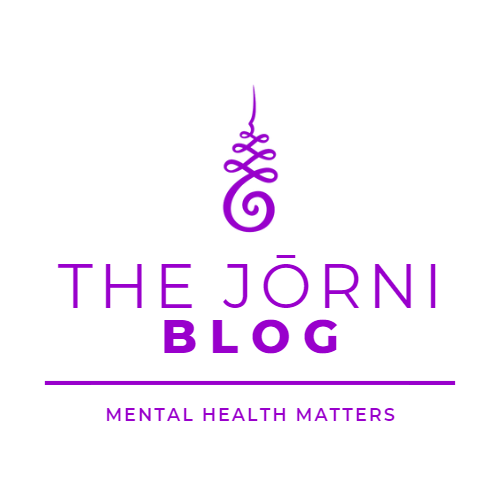A Deep Dive into Holistic Medicine
Holistic medicine, an alternative approach to health care, is garnering global attention. In a recent conversation with Jennifer K. Hill, an evolutionary leader known for her groundbreaking work in holistic health, we ventured into a detailed discussion on this fascinating subject.
“Keeping your body healthy is an expression of gratitude to the whole cosmos- the trees, the clouds, everything.”
- Thich Nhat Hanh
Who is Jennifer K. Hill?
Before we dive deep into whole-body medicine, let’s meet Jennifer K. Hill. An entrepreneur, author, speaker, and TV host, Jennifer has made significant contributions to the wellness industry. She has hosted shows with luminaries like Dr. Deepak Chopra and Dr. Rollin McCraty, driving conversations around health and wellness. With a new company, Optimal Match, she continues her exploration in the wellness space.

What is Holistic Medicine?
Holistic medicine is a broad field and a comprehensive approach to healthcare. Unlike conventional medicine, which focuses on treating specific illnesses or disorders, holistic medicine emphasizes the whole person and the interconnections between the physical, emotional, environmental, spiritual, and social aspects of well-being. The primary objective of holistic medicine is to achieve optimal health by gaining proper balance in life.
Practitioners believe that the body, mind, and spirit are intrinsically interconnected. As such, an imbalance in one area may negatively affect the others, potentially leading to disease or disorder. Consequently, instead of just treating the symptoms, holistic medicine aims to identify and address the root causes of the patient's distress to promote overall wellness.

In practical terms, a holistic approach involves taking into account multiple factors such as lifestyle, diet, exercise, personal history, and psychological well-being when diagnosing and treating a patient. It encourages patients to participate actively in their care and emphasizes preventative measures to avoid disease and maintain health.
Holistic medicine may encompass a wide range of therapies, including both conventional medical treatments and complementary alternative methods. The specific mix of approaches will depend on the patient's individual needs and the practitioner's expertise. The ultimate goal is to promote overall wellness, encourage self-healing, and improve quality of life.
The Science behind Holistic Medicine
Holistic medicine, though often associated with alternative healing modalities, is deeply rooted in scientific principles. It recognizes the intricate interplay between various systems of the human body, genetic factors, environmental influences, nutrition, and psychological health, and how these factors can collectively impact a person's overall health and well-being.
Biological and Systemic Interactions
Human biology is complex, consisting of numerous interconnected systems, including the nervous, cardiovascular, endocrine, digestive, respiratory, and immune systems. Whole-body medicine understands that these systems do not operate in isolation. Instead, they work synergistically, with changes or issues in one area potentially impacting others. This perspective, known as systems biology, is a core scientific principle underpinning holistic medicine.
Genetic Influences
The science of genetics has also informed the practice of whole-body medicine. Each individual's unique genetic makeup can influence their susceptibility to certain diseases, how they respond to medications, their nutritional needs, and more. Holistic medicine takes into account these genetic influences, which is in line with the emerging field of personalized medicine.
Environmental Factors and Nutrition
The environment in which we live and the food we consume significantly impacts our health. Exposure to environmental pollutants, for instance, can lead to various health issues. Similarly, our diet can influence our risk of developing conditions like heart disease, diabetes, obesity, and certain types of cancer. Holistic medicine considers these factors, emphasizing the importance of a clean environment and proper nutrition for maintaining health.

Psychological Health and Stress
Modern science recognizes that our psychological health and stress levels can have substantial effects on our physical health. Chronic stress can lead to a host of health problems, including heart disease, digestive issues, weakened immune function, and mental health disorders. Holistic medicine appreciates the mind-body connection and promotes psychological well-being as a crucial aspect of overall health.
Principles of Holistic Medicine
Whole-body medicine is underpinned by a set of key principles that set it apart from traditional healthcare models. These principles guide practitioners in their approach to patient care and form the foundation of holistic health.
The Individual is More Than Their Illness
A fundamental principle of holistic medicine is the belief that individuals are not simply the sum of their symptoms or their disease labels. Each person is considered a unique entity with complex interrelations among their body, mind, spirit, and social interactions.
Treatment Involves the Whole Person
In line with the first principle, treatment in holistic medicine is comprehensive. It involves addressing the person as a whole, taking into account all the facets of their being—physical, emotional, mental, social, and spiritual. This whole-person approach considers all these factors as interconnected components of an individual's overall health and wellbeing.
Patient and Practitioner are Partners
Holistic medicine recognizes the critical role of the therapeutic relationship. The patient and practitioner work together as partners in the healing process. This collaboration empowers patients, giving them an active role in their health decisions and fostering self-responsibility for their own wellbeing.

Healing is a Process
Healing, in the context of holistic medicine, is not just about curing a disease or removing symptoms. Instead, it's a dynamic process that involves enhancing the individual's innate self-healing capabilities. This perspective acknowledges that healing and growth can occur on various levels, even in the presence of illness.
Prevention and Promotion of Health
Prevention of disease and health promotion are integral components of holistic medicine. Practitioners emphasize the importance of a healthy lifestyle, including balanced nutrition, regular physical activity, stress management, and healthy social interactions. This proactive approach aims to maintain health, prevent disease, and achieve optimal wellbeing.
These principles of whole-body medicine offer a comprehensive and integrated approach to health care. They promote the notion of treating individuals in their entirety rather than focusing solely on isolated symptoms or diseases.
Benefits of Holistic Medicine
Holistic medicine, with its comprehensive approach to health and well-being, offers numerous benefits that make it an appealing alternative or complement to traditional healthcare. Here are some of the key advantages:
Comprehensive Care
One of the primary benefits of holistic medicine is its comprehensive approach to health. It considers all aspects of a person's life—physical, emotional, social, and spiritual—in diagnosing and treating health conditions. This multifaceted approach can lead to more thorough care and improved overall health outcomes.
Prevention Oriented
Holistic medicine emphasizes prevention as much as it does treatment. By focusing on maintaining a healthy lifestyle and addressing potential issues before they become problematic, it can help prevent disease and promote long-term health.
Personalized Treatments
Given that holistic medicine considers each person as a unique individual with their own set of lifestyle factors, genetic predispositions, and personal histories, treatment plans are highly personalized. This bespoke approach can be more effective in addressing the specific needs and conditions of the individual.

Focus on Root Causes
Rather than just treating the symptoms, holistic medicine strives to identify and address the underlying causes of illness. This approach can result in more sustainable health outcomes and prevent the recurrence of the disease.
Empowers Individuals
Holistic medicine encourages individuals to take an active role in their health and well-being. By participating in their treatment plans and making informed decisions about their health, individuals become empowered, which can lead to better adherence to treatment regimens and improved health outcomes.
Natural and Less Invasive Treatment Options
Holistic medicine often utilizes natural and less invasive treatments, such as changes in diet, exercise, stress management techniques, and other lifestyle modifications. These approaches can be effective and come with fewer side effects compared to some conventional medical treatments.
Addresses Emotional and Mental Health
By acknowledging the significant impact of mental and emotional health on overall wellbeing, whole-body medicine ensures these aspects are not neglected. This holistic approach can lead to improved mental health outcomes and better quality of life.
The benefits of this holistic approach are wide-ranging, extending beyond just physical health. By promoting prevention, personalized care, and self-empowerment, it supports a comprehensive path to health and well-being.
The Future of Holistic Medicine
With an increasing number of people seeking a comprehensive approach to health, holistic medicine's future seems promising. The concept of considering the whole individual—body, mind, spirit, and emotions—in healthcare is becoming more prevalent. New research and scientific findings continue to validate and expand the field of holistic medicine.
The TAKEAWAY
Holistic medicine, with its approach that encompasses every facet of human existence—physical, emotional, social, and spiritual—stands as a testament to the evolution of healthcare. Its emphasis on treating the individual as a whole, rather than just focusing on isolated symptoms or diseases, offers a more comprehensive view of health and wellness.
The principles and practices of holistic health promote an integrated approach to patient care, encouraging a therapeutic partnership between practitioner and patient, fostering self-responsibility, and emphasizing preventative measures. The scientific basis of holistic medicine, recognizing the complex interplay of biological systems, environmental influences, genetic factors, and psychological health, further substantiates its validity and effectiveness.

The benefits of whole-body medicine are multifaceted, extending from comprehensive and personalized care to disease prevention and long-term health promotion. Its focus on empowering individuals and utilizing natural and less invasive treatment options further underscores its potential to improve quality of life.
As the global community increasingly acknowledges the importance of mental and emotional health alongside physical wellbeing, holistic medicine has an increasingly important role to play. As this field continues to evolve and as more research unfolds, we anticipate seeing a broader adoption and recognition of holistic medicine.
It truly represents a vibrant, comprehensive, and profoundly impactful approach to health and wellness.

